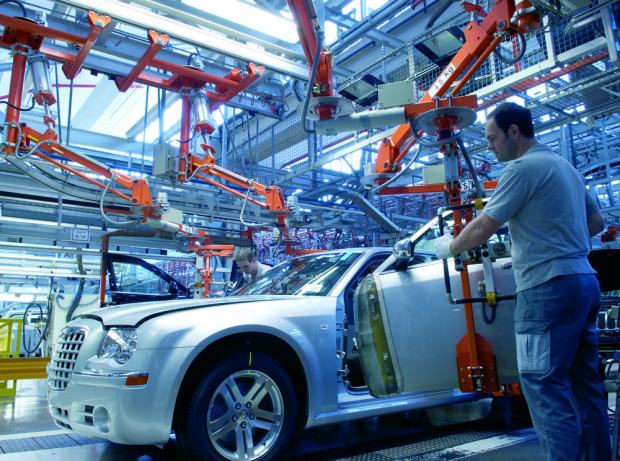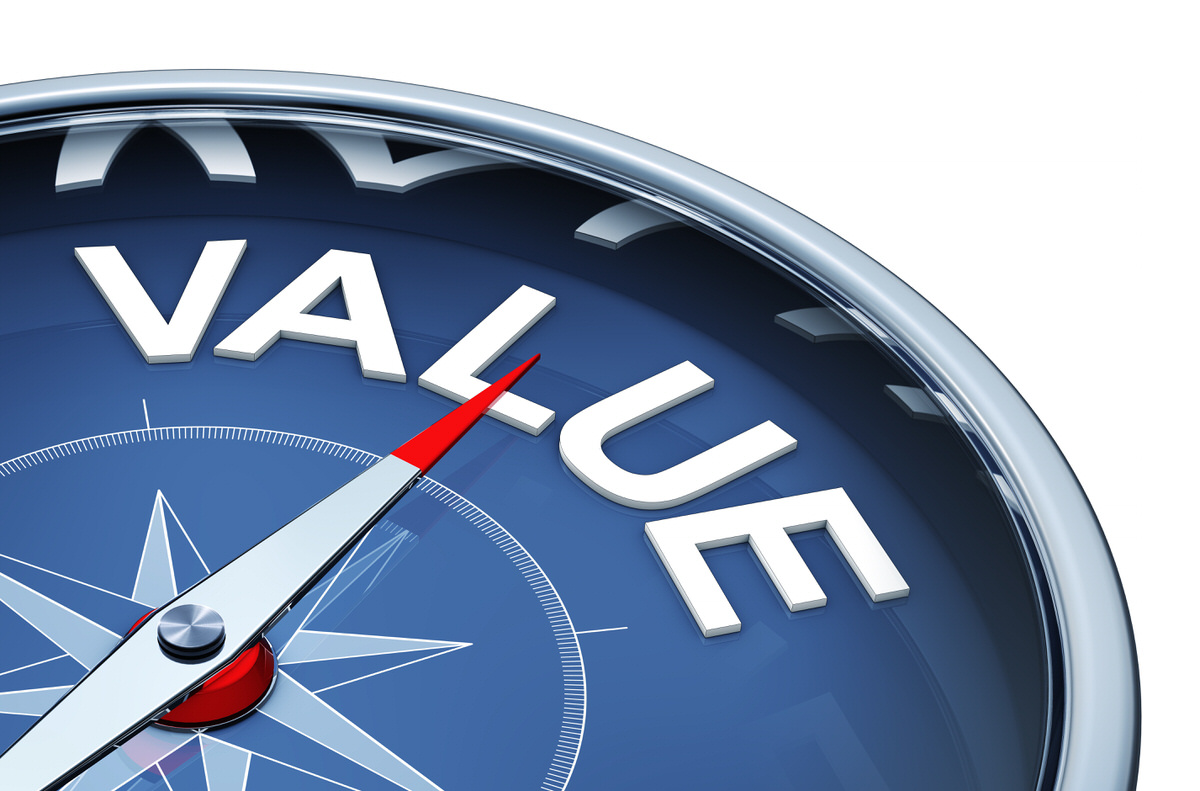by Katrina S. Dudley, CFA, Franklin Templeton Investments
Here are a few highlights from the conversation today:
- “I think that Biden’s environmental policies are much more aligned with the environmental policies of Europe, and given his diplomacy and given the relationship he has with Europe, I think that’s positive for the world in general.” – Katrina Dudley
- “Europe is pretty much locking down across all countries to varying degrees. We are going to see a double dip in growth in Europe. That means there will have to be more monetary and fiscal stimulus to respond to that.” – David Zahn
- “Most investors think of Europe and they think of banks and big oil companies, and those two sectors have now declined to be such a small part of the market. What really Europe is investing in and where we’re seeing a lot of innovation and growth is in technology companies, it’s in health care companies, which have a lot of innovation behind them. And they also have a very, very dominant luxury goods sector. Those types of growth areas I think, are something people are under appreciating.” – Katrina Dudley
- “I think Biden is probably a politician that Europeans can understand a little bit better than maybe the previous president. And so, I think from that perspective, the discussions will probably be a little bit more robust. Overall, I think it means that you will see a better agreement and move forward with Europe and the US together.” David Zahn
Transcript
Stephen Dover: Katrina, let’s just step straight into it. How is Europe in your mind affected by the outcome of the election and how does that mix with his other news about the vaccine?
Katrina Dudley: Obviously, we had the declaring of the president over the weekend. At the same time, we had the news about the vaccine. Yesterday was a really, really strong day for European markets, and decoupling those two things is very difficult, but you’ve had the resolution of uncertainty about who will be in charge and we’ve had positive vaccine news. And both of those are good for Europe.
Stephen Dover: David, how about from the fixed income or economic view? What’s the impact of the election and perhaps the vaccine news?
David Zahn: I think overall the president was a little bit more relaxed in reaction in Europe because we didn’t really see much movement in fixed income until we saw the vaccine announcement around noon European time. And that’s when you saw credit spreads do much better, peripheral government bond spreads do much better, but overall rates rise. So, I think it was more the vaccine that it was reacting to in the fixed income market rather than necessarily the presidential outcome.
Stephen Dover: So David, there has been a new wave of [COVID-19] infections in Europe. What’s the outlook for European growth given these new lockdowns?
David Zahn: Europe is pretty much locking down across all countries to various degrees. Some is regional, some it’s the whole country, and it’s not nearly as aggressive as it was back in March. So, we are going to see a double dip in growth in Europe. We had started to recover in the third quarter. We’re going to go back down and have slower growth. And so that means there will have to be more monetary and fiscal stimulus to respond to that.
Stephen Dover: So, Katrina, with the vaccine news that came out yesterday, who do you think, or what countries are you going to benefit the most from the vaccine or even what industries or companies?
Katrina Dudley: We’ve seen markets like Spain recover very strongly on the vaccine use, but you need to take it down a layer. It’s not necessarily the Spanish country that’s driving that it’s the constituents of the Spanish [stock market] index. You have a lot of banks in Spain, so they’re the typical value stocks, and value had a big rally on this vaccine news. And you also have some companies that within the Spanish market that are very heavily geared towards travel. For example, airlines had a very strong day. And one of the other stocks that was a very strong performer is a hotel stock that’s listed in Spain. So, while the Spanish market does not disproportionately benefit from the vaccine, it benefits as much as the rest of Europe. It’s just the constituents of this market really rallied yesterday.
Stephen Dover: That’s an interesting point. David, I’m looking at the euro, it has of course appreciated since the depths of the pandemic, but what are your thoughts on the future of the euro versus other currencies?
David Zahn: Well, I think that we’ve had a couple changes in Europe that actually have changed the view of the euro globally. And the biggest one is probably the EU rescue package that came out earlier this year, where for the first time you see the EU issuing debt and giving out grants to countries across Europe. This is nothing that has happened before, but I think that will create a much larger pool of bonds and EU bonds that other central banks will want to buy. And so, in general, I think the euro will become a better reserve currency. And so, I think you will see the euro start to appreciate against the [US] dollar partially because the dollar will probably decline a little bit, but also I think people have more robustness in the euro project going forward.
Stephen Dover: Now let’s get back to the election. Vice President Biden has said that if he’s president, there would be some changes perhaps in relationships with Europe, including trade relationship with NATO [North Atlantic Treaty Organization] and rejoining WHO. Katrina, if the US does rejoin WHO—the World Health Organization—what are the implications for Europe, or perhaps some of the other, ramifications with changes that President Biden might make?
Katrina Dudley: I think the US obviously on there, our former president has had a much more tenuous relationship with some of our traditional allied countries, particularly in Europe. We’ve had, as you’ve seen, the escalation of trade tensions, not only between the US and Europe, but the headline one between the US and China. If we look at what the president-elect has been talking about, we’re looking at rejoining WHO, we’re looking at rejoining the Paris Climate Accord, and resigning up to that. And we’re looking at being a much more involved member of NATO. In terms of WHO, and what rejoining means, from my perspective, I think that the distribution of the vaccine will be done on a much more equitable basis across the world and across countries versus it being distributed first in the United States and then distributed globally. So, I think from a societal and an equitable standpoint for me, that’s a very, very positive part of Biden’s platform.
Stephen Dover: And David, what are your thoughts on a Biden presidency, how that might affect the relationship between the United States and Europe?
David Zahn: Well, I think in general, Biden is much more a convener of groups of countries to try to get things accomplished rather than go it alone. And I think that is something that Europe, obviously given that the EU has made up to 27 countries, does on a regular basis and really likes that a multi-lateralism. And so, I think you’ll see rejoining of that. I also think that Biden is probably a politician that Europeans can maybe understand a little bit better than maybe the previous president. And so, I think from that perspective, the discussions will probably be a little bit more robust. So overall, I think it means that you will see a better agreement and move forward with Europe and the US together.
Stephen Dover: Katrina, you mentioned that a President Biden has said that he would rejoin the Paris Accord. Can you talk a little bit about, ESG investing, or environmental investing and how that might change?
Katrina Dudley: I think that Biden’s platform is much, much more focused on environmentally friendly policies. We’ve had the potential for a huge green deal. I am not necessarily sure that he may be able to get that through, but I think the sentiment and the willingness to invest in greening America really better aligns us with what’s happening in Europe. Europe has the recovery fund, and a lot of that recovery fund—what David talked about in terms of the grants being distributed—is going to be distributed to projects that are greening of Europe. For example, you have the greening of buildings and you’ll have the greening of transportation and other things. So, I think that Biden’s environmental policies are much more aligned with the environmental policies of Europe, and given his diplomacy and given the relationship he has with Europe, I think that’s positive for the world in general.
Stephen Dover: One thing I just note for our American listeners is that European investors take a much greater interest in ESG-type investing, particularly on the institutional side. But I would say that type of investing is much more prominent in Europe than it is in United States. David, what would your comments be on the environmental impact and perhaps even, um, green fixed income investments in Europe?
David Zahn: Yeah, I think at least the direction of travel of the US under the Biden administration will very much align with what Europe is doing. Europe is trying to get to carbon neutral by 2050, they brought forward some of their targets to 2035 to try to do it faster. There’s going to be a huge amount of money spent on this. And also, for individuals who invest in Europe, it’s incredibly important to them. And so, I think having both the US and Europe pulling the same direction actually is better for all.
As far as the green bond market, you know, we have seen an explosion in the size of the green bond market in Europe. And I think the European green bond market is one of the more robust ones because there’s a lot of focus on not just are you going to do a green project and the use of proceeds, but also getting annual updates of what have you actually done, has it actually done what it said it was supposed to. And the EU is also really pushing this through their rescue plan. They’re going to issue €225 billion in green bonds over the next four years. I mean, that’s massive. And so, you put that together. I really think Europe is becoming very much a central point for green fixed income, but the US definitely moving the way it is, could really join that initiative, which would be great.
Stephen Dover: So a lot of changes in the composition of the European market. Katrina, I don’t know that investors really realize how much the European equity market has changed, where technology now accounts for 15% of the market and health care is now the largest sector—it’s 16%. So perhaps in investors’ minds, they think of Europe as kind of older Europe, older industries. Can you talk a little bit about how the European market and the makeup of the European equity market is changing?
Katrina Dudley: I think most investors, as you’ve identified, think of Europe and they think of banks and big oil companies, and those two sectors have now declined to be such a small part of the market. What really Europe is investing in and where we’re seeing a lot of innovation and growth is what you’ve talked about, is in technology companies, it’s in health care companies, which have a lot of innovation behind them. And finally, they also have a very, very dominant luxury goods sector. And that is another growing area of the market. And those types of growth areas I think, are something that people are under-appreciating. When they look at Europe, they see, you know, the big oil companies, and they see a very, very large financials sector. And I think that that perception is wrong. That’s a dated perspective of the market that was probably relevant a decade or two ago but is no longer relevant today.
Stephen Dover: And David, how about the makeup on the corporate bond side? Where do you see opportunities there and what are your thoughts on that sector?
David Zahn: The corporate bond market in Europe has really changed a lot over the last five to 10 years, and just become much more globally diversified. So, we think investment-grade fixed income will continue to perform well with the ECB [European Central Bank] doing its purchasing programme. But we really like banks, subordinated bank debt. We think that’s a good area to be in, but also industrials, we think that’s another good area to be in because they basically are the backbone of Europe and they have to remain, they have to succeed, and the authorities will make sure that happens.
Stephen Dover: David, let’s turn to where you are, to London and to the UK and Brexit. President Trump was very much in favor, outspoken about Brexit. Vice President Biden spoke against Brexit. One of the issues with Brexit was the idea of a trade deal with the United States. That was a priority for the Trump administration. It’s unlikely to be a priority for the Biden administration. I don’t know that we’re getting as much news on Brexit as we have in the past. Maybe you can update us and tell us your thoughts.
David Zahn: Brexit negotiations, even though the UK officially left the EU at the beginning of this year, we’re in a transition year where they’re having trade negotiations with the EU, which still haven’t concluded. In general, they’re arguing over the same areas, you know, oversight, fisheries, etc. And we now have November 15th as the date that both sides have set, that we need to have something done. There does seem like there is movement in this, but there’s still a good chance we could leave. The UK could leave without a deal, and then the only trade deal that has been signed other than that is with Japan. So, everything else in the world would go to WTO [World Trade Organization] rules.
I think there will be a huge focus on trying to get more trade deals done before the end of the year. But obviously these deals take a long time to do. I think Biden will focus more on Europe than the UK. I don’t think he will likely abandon the UK or anything. It’s just, if he looks at who is equal across the pond, it’s the EU and the US should be much more closely related. And the UK, since it’s no longer part of that, will probably be slightly outside that. So, I think from that perspective, it probably will mean there will still be a trade deal with the US, but it won’t be at the top of the agenda. It will just be something where we need to get that done. So, I think that will create some delay. And, I think that is probably not what the UK government wants.
Stephen Dover: So Katrina, to negotiate Brexit by November 15, that’s coming up quickly. How do you see that in terms of opportunities and risks in the equity markets?
Katrina Dudley: Well, I do think the one thing we did learn is that President Trump did teach all of those EU and UK negotiators how to use Twitter effectively to communicate their message to the broader public. So, we’ve actually seen one benefit from the president, but we’ve had a lot of Twitter news. We’ve had a lot of negotiation that’s going on in the public domain as well as behind the scenes. I think the ability to push through a trade deal that quickly is very difficult, as David rightly pointed out. From the perspective of the UK market, it’s actually interesting. You keep needing to go back to understanding that the UK market, the stock market, is actually not representative of the UK economy. Most of the companies that are in the UK stock market are actually global franchises that generate most of their sales outside of the UK region. So, you can actually have the UK suffering from leaving Brexit while the stock market continues to work. We think that there could be some opportunities. We look at the discount in terms of where the UK market is trading versus the rest of the market, and that is at 10-year lows. We do think that there are some potential opportunities to buy some of these domestic franchises that have a significant portion of their revenues generated in the UK. The stocks have been punished, and we think that that represents potentially a buying opportunity for us.
Stephen Dover: If there’s any lesson we need to learn, over and over again, is that the stock market does not reflect the local economy. Where a stock is listed really has nothing to do per se with the local economy. So, we have to look at the stocks individually. So, there’s much in the headlines about the relationship of course, between the United States and China, but Europe is having its own negotiations with China. David, what do you think is going to happen in terms of the ongoing relationship between Europe and China?
David Zahn: It’s a really excellent question because I think that Europe kind of feels like it’s stuck a bit in the middle, because you have the US on one side, you have China on the other, and Europe is trying to please both sides and to various degrees because there are different countries than Europe. There are much more looking towards China and they’re more, they’re looking towards it. And there are others looking towards the US, so I think it is this delicate balancing act because it is a group of countries that have to come together. I think they will try to keep both sides open and keep their options open rather than declare for one side or the other. But obviously in technology, as the technology seems to be splitting apart between China and the US, this will become much harder and they will have to try to pick a side. And that will be interesting to see how that develops and how that moves forward.
Stephen Dover: Katrina, do you have any comments on Europe and China? When we look at countries like Germany, which because of its manufacturing, has benefitted greatly from trade with China. How do you see that relationship going forward?
Katrina Dudley: I think that the lessening of trade tensions is good for Europe and particularly good for companies that are doing business with China. I hear the comments on the technology side of things. I think that debate has a lot more room to run. Also, we have a new president who is, as we say, much more conciliatory and much more focused on bringing companies and countries together. And I think that that is good for Europe in terms of its growth engine—obviously you’re right—has benefitted from being able to sell products into China, but they’ve also benefitted from selling products into the United States market and into other emerging economies as well, as well as into Europe in and of itself. So, I think we’re positive in terms of what we see as the outlook for Europe. One of the big drivers we do see for European growth expectations going forward is the European recovery fund and the investment that’s been made. Now, we could have a slight growth hiccup as we have the second wave of [COVID-19] infections. But as we take a longer-term perspective, we think that Europe in terms of its ability to grow at a faster rate than it has it in the past is well positioned going forward.
Stephen Dover: So, David, if Europe does grow faster, what is your outlook for inflation going forward in Europe?
David Zahn: I don’t think I’m quite as optimistic about the growth. So maybe that’s the slight difference between us. I think that the EU recovery plan is great. I’m really glad that they’ve done it. But, a lot of the money probably won’t show up until closer to the end of next year. So, its ability to get into the market is going to take longer. So, I think growth will be slow. I think it will probably take us a couple of years to get back to where we were pre-COVID. But then again, that shouldn’t be a huge surprise. Remember after the global financial crisis, it took over a decade to get back to the same level of growth. As far as inflation, Europe tends to have a lower inflation profile than say the US, right. The latest print in Europe was inflation of 0.2 [%]. If you look back at the ECB, what were their forecasts three months ago, which are radically changed. They were saying in 2022, we would get to 1.3 [%]. So overall I think inflation will remain quite muted. There’s a lot of disinflationary effects due to COVID and what’s happening to the workforce, etc., that will keep inflation quite low in Europe. And so, I think it will mean the ECB is going to continue to be accommodative and there will be wishing they can get high inflation. You know, they would love it if they all of a sudden had 2.5% inflation, but I don’t think that’ll be the case. So, there’ll be further accommodation to try to get us to that point.
Stephen Dover: So David, with low inflation, low rates, lower than the United States—in some cases negative—how should investors be thinking about fixed income investing?
David Zahn: I think it means that we need to be really active that you need to be moving between. How much do you have in high yield? How much do you have in investment grade? Are you using other European currencies? Are you managing your duration effectively? And it’s really going to be that active focus and taking advantage of opportunities that present themselves when we get volatility or stressed markets. I think that’s how you’re going to add value. You’re not really able to add value by just going out and saying, well, I’ll buy the benchmark European govies [government bonds] because you won’t get hardly any return out of that. Whereas I think if you were active at it and you look at different pockets of opportunity, you really can still get a lot of return out of Europe.
Stephen Dover: And Katrina, how do you see Europe opportunities relative to other opportunities you see around the world and where specifically in Europe, do you find the best opportunities?
Katrina Dudley: The good news is that we are stock pickers. So, we get to pick stocks regardless of the country that they located in. We kind of go back all the time to our core investment process, which is looking at companies with growing, sustainable, distributable, free cashflow with the catalyst that they can increase that, trading at valuations with the business prospects, from our perspective, are much better than where the market is pricing in. In terms of, as we look globally, I would reiterate that I do think that there is a case for why Europe now. I’m an equity investor, so I’m always on the optimistic side of things. I think that that’s one of the differentiators between ourselves and bond investors, but I do believe that the recovery fund does represent significant opportunities.
For example, we were talking to a company yesterday. Germany, just Germany alone, is going to invest over €90 billion in its rail network over the next 10 years, and that is going to benefit a number of stocks. It is not just going to benefit those stocks. It’s also going to benefit the environment and society as whole, because it opens up rail transportation to a much broader group of people. And it is a much more green and friendly way of doing things. So I think that the recovery fund, even though it may take some time for those funds to get distributed, may actually catalyse a number of companies to pull forward some of these investments that are focused on green initiatives and offer focused on stimulating the economy post-pandemic. And that’s a good thing for Europe.
Host: And thank you for listening to this episode of Talking Markets with Franklin Templeton. We hope you’ll join us tomorrow, as our special series related to the US elections continues. And, if you’d like to hear more, visit our archive of previous episodes and subscribe on iTunes, Google Play, Spotify, or just about any other major podcast provider.
What Are the Risks?
All investments involve risks, including possible loss of principal. The value of investments can go down as well as up, and investors may not get back the full amount invested. Investments in fast-growing industries like the technology sector (which has historically been volatile) could result in increased price fluctuation, especially over the short term, due to the rapid pace of product change and development and changes in government regulation of companies emphasising scientific or technological advancement. Value securities may not increase in price as anticipated or may decline further in value. Special risks are associated with foreign investing, including currency fluctuations, economic instability and political developments. Investments in emerging markets involve heightened risks related to the same factors, in addition to those associated with these markets’ smaller size, lesser liquidity and lack of established legal, political, business and social frameworks to support securities markets. Smaller company stocks have historically had more price volatility than large-company stocks, particularly over the short term. Bond prices generally move in the opposite direction of interest rates. As the prices of bonds in a fund adjust to a rise in interest rates, the fund’s share price may decline. High yield bonds carry a greater degree of credit risk relative to investment-grade securities. The risks associated with a real estate strategy include, but are not limited to, various risks inherent in the ownership of real estate property, such as fluctuations in lease occupancy rates and operating expenses, variations in rental schedules, which in turn may be adversely affected by general and local economic conditions, the supply and demand for real estate properties, zoning laws, rent control laws, real property taxes, the availability and costs of financing, environmental laws, and uninsured losses (generally from catastrophic events such as earthquakes, floods and wars).
Investments in alternative investment strategies are complex and speculative investments, entail significant risk and should not be considered a complete investment programme. Depending on the product invested in, an investment in alternative investments may provide for only limited liquidity and is suitable only for persons who can afford to lose the entire amount of their investment.
Any companies and/or case studies referenced herein are used solely for illustrative purposes; any investment may or may not be currently held by any portfolio advised by Franklin Templeton. The information provided is not a recommendation or individual investment advice for any particular security, strategy, or investment product and is not an indication of the trading intent of any Franklin Templeton managed portfolio.
Diversification does not guarantee a profit or protect against a loss.
Important Legal Information
This material is intended to be of general interest only and should not be construed as individual investment advice or a recommendation or solicitation to buy, sell or hold any security or to adopt any investment strategy. It does not constitute legal or tax advice.
The views expressed are those of the investment manager and the comments, opinions and analyses are rendered as of publication date (or specific date in some cases) and may change without notice. The information provided in this material is not intended as a complete analysis of every material fact regarding any country, region or market.
Data from third party sources may have been used in the preparation of this material and Franklin Templeton (“FT”) has not independently verified, validated or audited such data. FT accepts no liability whatsoever for any loss arising from use of this information and reliance upon the comments, opinions and analyses in the material is at the sole discretion of the user.
Products, services and information may not be available in all jurisdictions and are offered outside the U.S. by other FT affiliates and/or their distributors as local laws and regulation permits. Please consult your own professional adviser or Franklin Templeton institutional contact for further information on availability of products and services in your jurisdiction.
Issued in the U.S. by Franklin Templeton Distributors, Inc., One Franklin Parkway, San Mateo, California 94403-1906, (800) DIAL BEN/342-5236, franklintempleton.com—Franklin Templeton Distributors, Inc. is the principal distributor of Franklin Templeton Investments’ U.S. registered products, which are not FDIC insured; may lose value; and are not bank guaranteed and are available only in jurisdictions where an offer or solicitation of such products is permitted under applicable laws and regulation.
CFA® and Chartered Financial Analyst® are trademarks owned by CFA Institute.
This post was first published at the official blog of Franklin Templeton Investments.













